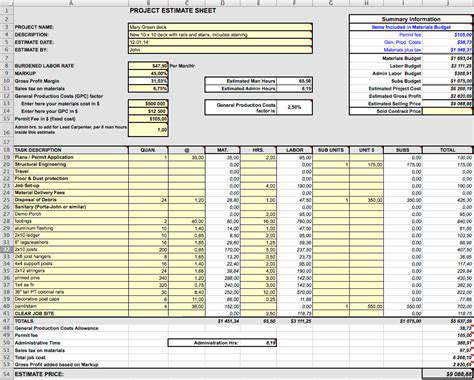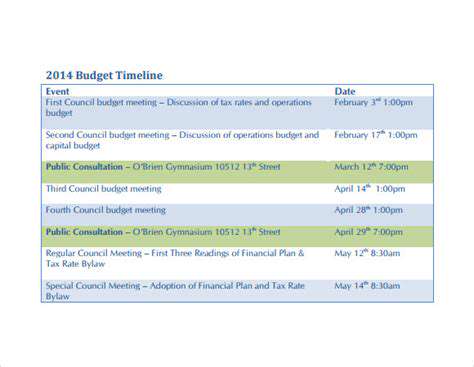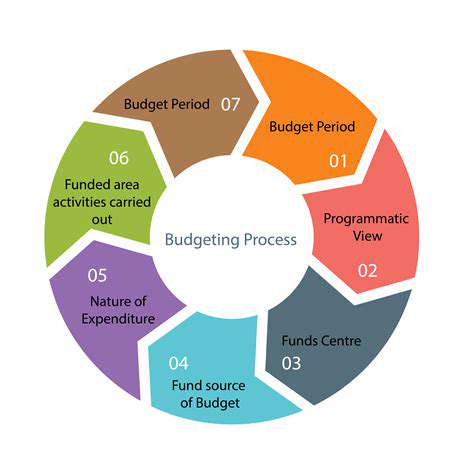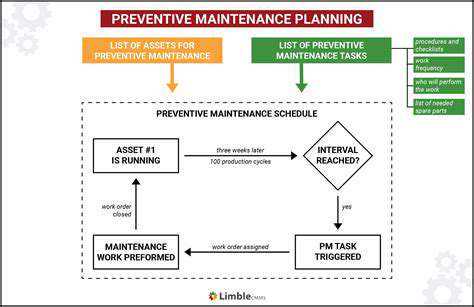How to Select the Best Home Renovation Service
Assessing Your Renovation Needs and Defining Your Budget

Initial Assessment and Planning
Before embarking on a renovation project, a crucial first step is a thorough assessment of your current living space. This involves carefully considering the existing layout, identifying areas that need improvement, and understanding your specific needs and preferences. A detailed plan, outlining the scope of work, budget, and timeline, is essential for managing expectations and ensuring a smooth renovation process. This initial assessment will help you avoid unforeseen challenges and ensure that the final outcome aligns with your vision.
Considering the functionality and aesthetics of each room is vital. Are there areas that are underutilized or poorly designed? Think about how you can improve workflow, natural light, and overall ambiance. This detailed planning phase will help you make informed decisions throughout the renovation process.
Budgeting and Resources
A realistic budget is paramount to successful renovations. Detailed cost estimations for materials, labor, permits, and unforeseen expenses should be factored in. It's crucial to establish a clear financial plan, considering potential fluctuations in prices and the need for contingency funds. Understanding the available resources, such as personal savings, loans, or grants, is equally important for a smooth financial journey.
Thorough research into different contractors, materials, and suppliers is highly recommended. Seeking multiple quotes and checking references will help you make informed decisions and ensure you're working with qualified and reliable professionals. This proactive approach will save you time, money, and potential headaches down the line.
Selecting Materials and Design
Choosing the right materials and design elements is critical to achieving your desired aesthetic and functionality. Consider factors like durability, maintenance requirements, and environmental impact when selecting flooring, countertops, and fixtures. Researching different options and seeking professional advice from designers or architects can help you make informed decisions.
High-quality materials often translate to a longer lifespan and a more aesthetically pleasing outcome. Exploring different styles and trends is important, but prioritizing functionality and longevity will ultimately benefit you in the long run. Remember to visualize how the chosen materials will fit within the overall design scheme.
Timeline and Permits
Establishing a realistic timeline for the renovation project is crucial for managing expectations and avoiding delays. Consider the time required for material delivery, contractor scheduling, and potential unforeseen circumstances. A detailed schedule, broken down into manageable phases, will help keep the project on track.
Obtaining necessary permits and adhering to building codes is essential for legal compliance and structural integrity. Researching the specific regulations in your area and consulting with relevant authorities will help ensure a smooth and legal renovation process. This proactive approach will save you time and potential legal issues.
Understanding the Renovation Process and Timeline
Planning and Budgeting
A crucial aspect of any home renovation project is meticulous planning, encompassing everything from initial concept to final execution. This involves defining the scope of work, identifying the desired outcomes, and gathering essential information like permits required, material costs, and labor rates. Thorough research into different contractors and vendors is equally important, ensuring that you choose reliable and reputable professionals who align with your budget and project vision. Proper budgeting, including contingency planning for unforeseen expenses, is paramount to avoid financial surprises and maintain project control throughout the renovation process.
Budgeting for home renovations demands a comprehensive approach. It's not just about the initial cost of materials; it also encompasses potential cost overruns, unexpected delays, and the need for adjustments along the way. Building a detailed budget that accounts for these factors will provide a clearer picture of the overall financial commitment. This includes allocating funds for materials, labor, permits, and any unforeseen circumstances that might arise during the renovation process. An accurate and realistic budget will provide peace of mind and help you make informed decisions throughout the entire project.
Understanding the Renovation Timeline
A realistic renovation timeline is essential for effective project management. This involves breaking down the project into manageable phases, considering potential delays, and establishing realistic deadlines for each stage. Factors such as obtaining necessary permits, coordinating with contractors, and sourcing materials will all impact the overall duration of the project. Clearly defined milestones and communication channels between all parties involved are key to keeping the project on track and minimizing potential disruptions.
Managing expectations is crucial for a smooth renovation experience. Construction projects, by their nature, can be susceptible to unforeseen circumstances, such as material shortages, weather delays, or unforeseen structural issues. Having a flexible approach and understanding that adjustments to the timeline may be necessary is vital. Transparent communication with your contractors and a willingness to adapt to these potential challenges will help ensure that the project stays on track despite unforeseen obstacles. A well-defined timeline is a guide, not a rigid schedule.
Anticipating potential delays and having contingency plans in place is crucial for maintaining a realistic timeline. This includes factoring in potential delays related to material procurement, unforeseen structural issues, or weather conditions. Having a buffer period built into the timeline allows for these contingencies and ensures that the project doesn't get derailed by unexpected hurdles. A well-managed timeline, adjusted as necessary, will ultimately contribute to a successful and stress-free renovation experience.
Properly sequencing tasks and allocating adequate time for each step is vital. A well-organized timeline, in addition to the detailed budget, will allow for smoother execution of the project. This means clearly defining the tasks, determining their dependencies, and scheduling them in a logical order. Understanding these details will allow for a more efficient and less stressful renovation process.
Effective communication between all stakeholders is fundamental to sticking to a renovation timeline. Regular updates, progress reports, and open dialogue with contractors and subcontractors are vital for transparency and problem-solving. This proactive approach helps identify and address potential issues early on, avoiding larger and more costly delays later in the project. Maintaining open lines of communication throughout the renovation process will contribute significantly to the project's success.
A comprehensive understanding of the renovation process, encompassing planning, budgeting, and timelines, is critical to selecting the best home renovation project. By carefully considering these factors, you can avoid costly mistakes and ensure a positive and rewarding experience.












